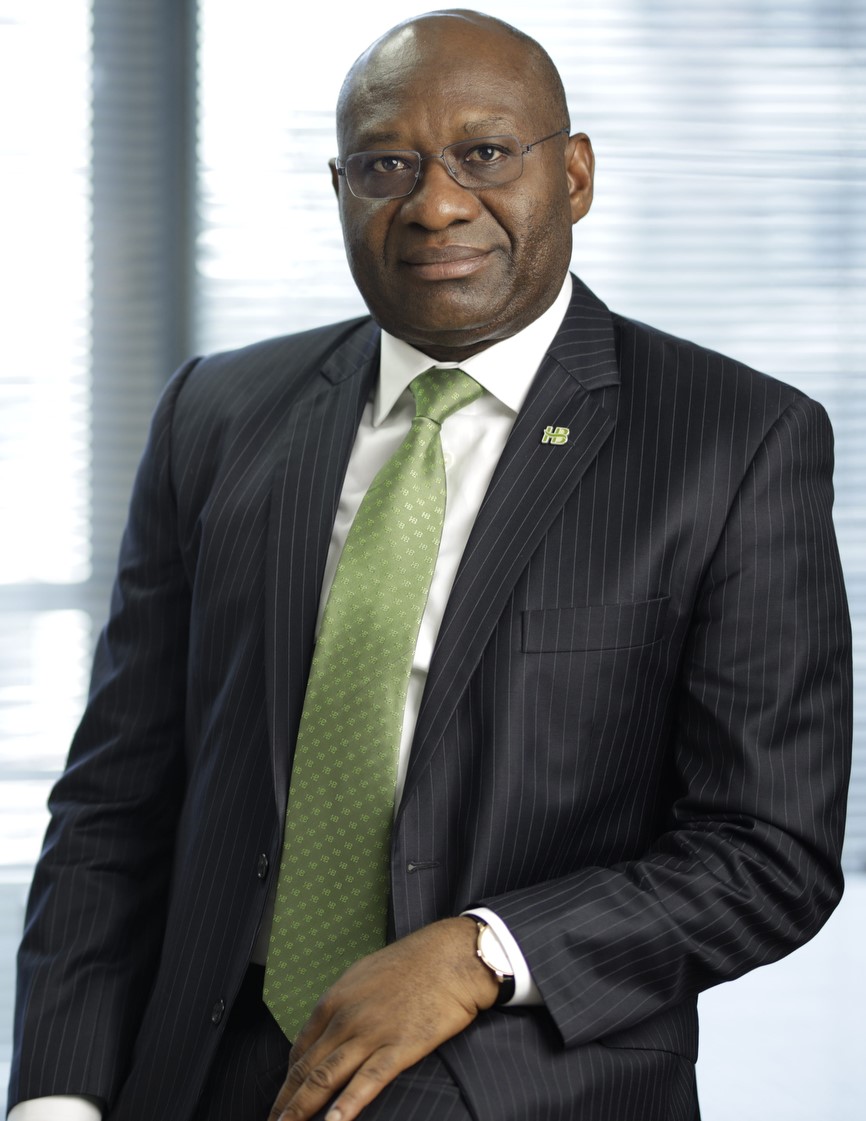...To get all news updates, Join our WhatsApp Group (Click Here)
Also Join our WhatsApp Channel (Click Here)
Today marks a worthy milestone in the life of one of the fastest growing financial service provider, Heritage Bank Plc as it celebrates eight (8) years of entrenching seamless service delivery in the business of banking in Nigeria.
This is a journey that began eight (8) years ago, premised on passion, commitment, doggedness, culture and hard work amongst others, stands today as a reputable financial organisation in the Nigeria banking space.
The story began in 2012; a story of hard work and determination when Heritage Bank Plc emerged from a business combination of Heritage Banking Company Limited (HBCL) and Enterprise Bank Limited (EBL) after the acquisition of SocieteGenerale of Nigeria’s (SGBN) license by IEI Investment Ltd from the Central Bank of Nigeria (CBN) having met all requirements by Nigeria’s apex bank.
Heritage Bank returned 100% of existing SGBN account holders’ funds which were frozen at the closure of the SGBN. This move brought a lot of smiles to the faces of former account holders and inspired many of them to open new accounts with Heritage Bank. In October 2014, Heritage Banking Company Ltd successfully met the requirements of the Asset Management Corporation of Nigeria (AMCON) and the CBN toward owning 100% shares in Enterprise Bank Ltd., after a highly competitive bid process. This development firmly anchors the Heritage Bank in a rich legacy of technology and innovation in the banking industry. SGBN, which was incorporated in December 1976 and commenced full banking operations in August 1977, pioneered the introduction of e-banking services including its flagship, the 24/7 Cashpoint through the Automated Teller Machines (ATMs) in 1990.
With a management focused on innovation through technology and a unique philosophy to create, preserve and transfer wealth to its customers, Heritage Bank found itself in a fiercely competitive banking environment but it remained guided by passion, resilience, innovation and a brand architecture that exuded quality service, performance and sheer excellence.
Still, as big a move as it was, it remained just one of the many strategic moves to change the banking industry and Heritage Bank has made a lot of them and attains giant strides in reshaping the economy since it began operations in 2013 to drive improved investment outcome and job creation.
Success stories of entrenching business of banking in Nigeria:
As a catalytic financial institution, Heritage Bank, through its strategic partnerships with government and private organisations, has continued to make efforts to transforming the nation’s economy through championing entrepreneurial schemes for businesses and the micro, small and medium enterprises (MSME) sector was not left out, which have always focused on dependable job-creating sectors, such as education, agricultural value chain (fish farming, poultry, snail farming), cottage industry, mining and solid minerals, creative industry (tourism, arts and crafts), and Information and Communications Technology (ICT).
In recent times, the bank’s response to dealing with the global economic challenge occasioned by COVID-19, which highly impacted SMEs, Heritage Bank PLC has continued to deepen its support to young entrepreneurs in Nigeria to grow their businesses either as start-ups or prospective business owners.
One of such is the last Season of the reality TV show The Next Titan, themed “The Unstoppable” that was designed to search for business ideas that are immune to any pandemic, innovations that break boundaries and technologies that can survive any lockdown. This programme produced a young vibrant entrepreneur, graduate of the Federal University of Technology Owerri with a Bachelor Degree in Environmental Science who is the Chief Executive Officer of Josult Oil Processing Company, a palm oil processing company in Akwa Ibom State, Joshua Joseph Idiong, as he finally emerged the winner of the Next Titan Season-7, going home with a whooping sum of N10million. Furthermore, Heritage Bank PLC in partnership with Honourable Fatima Mohammed (FAMO) Foundation also provided succor to over 300 affected private school teachers and small medium enterprises (SMEs).
Heritage Bank has continued to blaze the trial on the SME’s space to empower young entrepreneurs in such schemes as the HB Innovation Lab Accelerator programme (HB-LAB), Ynspyre Account, Youth Innovative Entrepreneurship Development Programme (YIEDP), Centre for Values in Leadership (CVL) on Young Entrepreneurship Business Training Programme (YEBTP), Young Entrepreneurs and Students (YES) Grant and Nigerian Youth Professional Forum (NYPF), Big Brother Nigeria, Lagos Comic Con, among others.
Last year witnessed the Launch of the Nationwide Dukia-Heritage Bank Gold & Precious Metals which stands to create new opportunities for Nigeria to grow its potential reserves of 200 million ounces of gold.
The Nationwide Dukia-Heritage Bank Gold & Precious Metals Buying Centre will fast-track 10per cent contribution of mining sector to GDP by 2026. Referring to this giant strides, Prof. YemiOsinbajo remarked that the launch of this project between Heritage Bank and ‘Dukia Gold SPV’ would enable Nigeria to mine reserves properly, trade responsibly, refine locally and boost the nation’s foreign reserves.
Heritage Bank has continued to support Nigeria’s aspiration and roadmap to become a leading Information Communication Technology (ICT) Hub in Africa, The Bank doled out the sum of $40, 000 grants to winners of the maiden edition of HB Innovative Lab.
The bank’s commitment is to create enabling environment, resources and support required to innovate and accelerate impactful solutions with the potential to radically improve financial inclusion/intermediation, health, automobile, agriculture, and other related problems affecting critical sectors of the economy.
For the bank’s giant stride of support to tourism, Federal Government commended Heritage Bank for its commitment to the development and growth of the creative industry.
Minister of Information and Culture, Alhaji Lai Mohammed, gave the commendation at a two-day Creative Nigeria Summit.
The bank, aimed at boosting Nigeria’s tourism via creative arts industry supported the sponsorship of exhibition at the National Museum Benin, at the Exhibition Gallery of National Museum Benin by the National Commission for Museums and Monuments (NCMM), in collaboration with the Edo State Government, and the Smithsonian Institute, United States of America.
Also, efforts are being taken by Heritage Bank Plc and the River State government during the National Festival of Arts and Culture (NAFEST) to make art and culture a unifying factor and major earner to the contribution of Gross Domestic Product (GDP) of the country.
Heritage Bank Plc partnered with the organizers of the International Festival of Contemporary Dance (IFCOD) to host the second edition of One Language, a musical production of intrigue, dance and drama.
Most prominent of its partnership and supports is the annual Calabar Carnival and festival, tagged “Africa’s Biggest Street Party,” was created as part of the vision of making Cross River State the number one tourist destination for Nigerians and other tourists across the world.
Heritage Bank is not done yet. The bank went further to prove its trend setting profile by driving seat of the agricultural financing revolution.
In a bid to support the real sector and unlock food potentials, Heritage Bank Plc provided over N5billion long term facility under the Commercial Agriculture Credit Scheme (CACS) to Triton Aqua Africa Ltd (TAAL).
TAAL known as Triton Farm accessed the CACS through Heritage Bank, which was used to set up aquaculture businesses; nursery/hatchery to produce fingerlings and brood stock in Ikeja and earthen ponds for catfish and Tilapia in Asejire, Iwo and Gambari towns in Oyo State.
Under the arrangement, TAAL will also help small-scale farms increase their fish production by making fingerlings available to them.
In the short term, the loan is expected to help Triton double its current production capacity of 25,000 metric tonnes with a projection to scale it up to 100,000 metric tonnes in five years.
The bank also has thrown its weight behind Globus Resources Limited, a subsidiary of Triton Group, to flag off the second phase of afforestation programme in Oyo state.
Nigeria’s demand capacity for fish was estimated at 2.7million metric tons and the country currently produces 800,000 metric tons.
Triton is now producing over 25,000 metric tons and with them on board, over 25,000 metric tons capacity will be added to our current production, the company’s projection is to exceed 100,000 metric tons in 5years.
In the state level, Heritage Bank entered into partnership with the Oyo State government in a multi-billion-naira project to give agriculture a boost.
Under the initiative, the bank supported the Oyo State Agricultural Initiative, OYSAI, a programme designed to revive agriculture, boost agro-allied businesses and massive empowerment programme for both youth and women across the state through the creation of thousands of jobs in the sector.
This huge, albeit laudable, project that is spread across 3,000 hectares of land in 28 of the 33 Local Government Areas of Oyo State is in three stages: food crop cultivation, cash crop/horticulture, and food processing.
Heritage Bank is supporting agro investors involved in this initiative with funds and advisory services and indications are that the programme has already led to more than 30 per cent increase in food production in the state.
The Bank also supported thousands of small holder farms in Kaduna and Zamfara states to benefit from the bank’s financial support for rice and soya beans production under the Central Bank of Nigeria’s Anchor Borrowers Programme (ABP).
Further on job creation, Heritage Bank through its establishment of a full-fledged learning and development institute accredited by the Chartered Institute of Bankers of Nigeria (CIBN), dubbed “The Refinery” successfully trained and employed about 300 new intakes.
In the midst of the bank’s audacity to dare and succeed, industry watchers have continued to ask; how are they doing it? The answers may not be far from the fact that this is one bank whose leadership team continues to exude the charisma of the Midas touch. With Heritage Bank, the MD/CEO, IfieSekibo has proven over and over again that whatever he touches, turns into gold.
You can get every of our news as soon as they drop on WhatsApp ...To get all news updates, Join our WhatsApp Group (Click Here)
Also Join our WhatsApp Channel (Click Here)

















